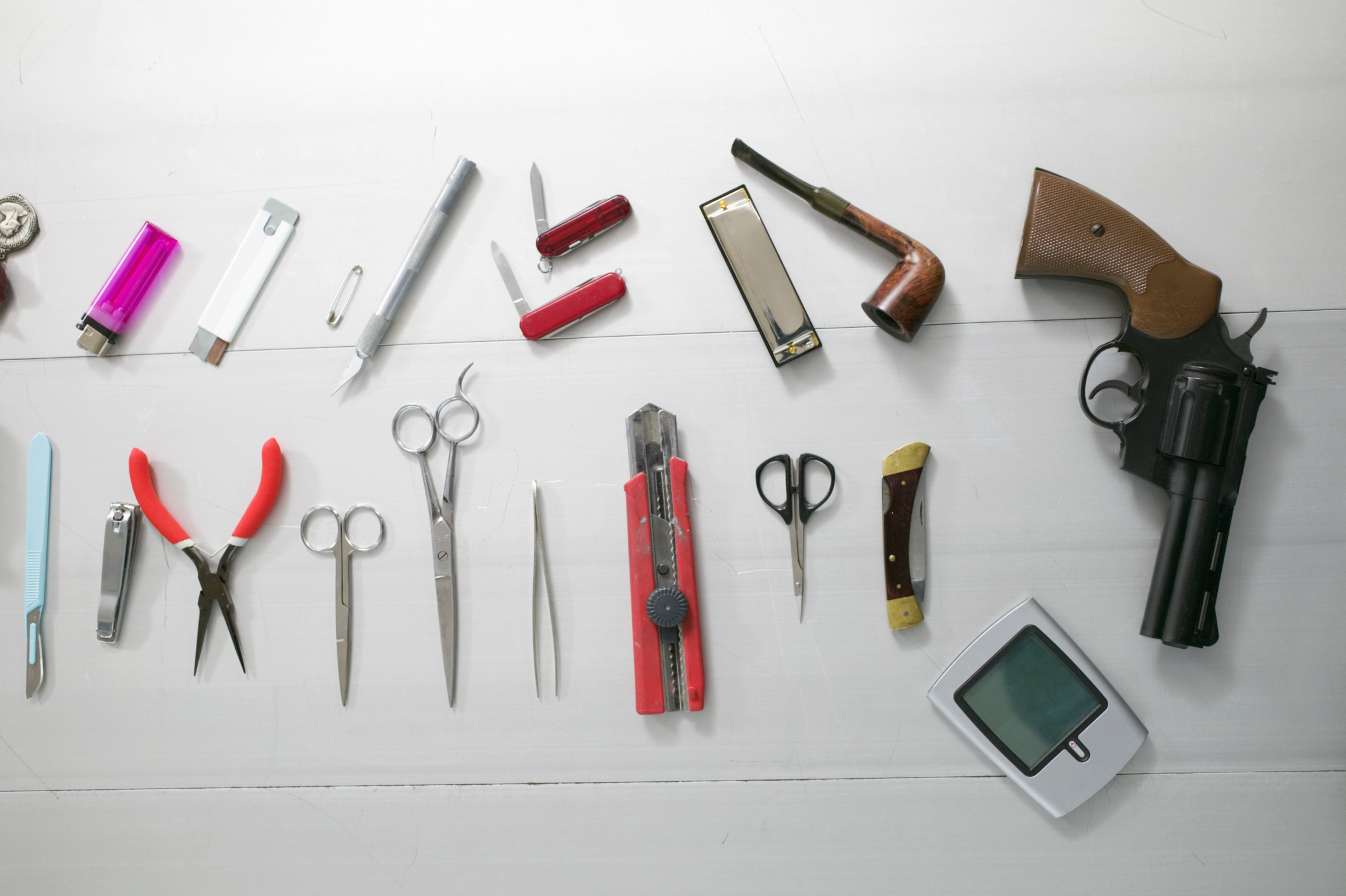The term "obsessive-compulsive disorder", better known as OCD, has especially in recent years become a derogatory term, used flippantly in conversation when a person needs to sort things properly, adjust an item that's out of place, re-arrange a stack of books according to size or wipe down a table or bench surface before sitting down.
Truth is, though, it continues to be a real problem that brings great pain to people. And us throwing around the term "OCD" isn't helping them one bit.
Here are some legit OCDs that people (even in Singapore) actually suffer from:
1. The one we are mostly familiar with: the fear of germs and contamination
 Photo: Thinkstock
Photo: Thinkstock
This was suffered by an 18-year-old student named James, who started being obsessively concerned that he would contract the human immunodeficiency virus (HIV). He avoided touching things that were touched by others in public (point of clarification here, though: HIV is only passed through blood, semen (cum), pre-seminal fluid (pre-cum), rectal fluids, vaginal fluids, and breast milk, and have to come into contact with the mouth, anus, penis or vagina, or be directly injected into the blood stream), like lift buttons and handrails, and it got to the point where he would not bring any items he brought outside of his house into his own room, like his school bag.
Thankfully, James realised something must be quite wrong with how he was behaving, and spoke to his parents about it. He then went to the polyclinic, which referred him to the Institute of Mental Health, which put him under exposure response prevention therapy — this involved small steps like bringing his pencil case into his room — and the problem plagues him far less than it used to.
2. Another one we are used to: The need to do things perfectly
 Photo: Thinkstock
Photo: Thinkstock
A 43-year-old saleswoman named Clara suffered from this when she was in secondary school. In Sec 3, she emerged as the top student in her level at her final examinations, but was so obsessed about repeating her performance and in being perfect that she continually memorised her notes until she was satisfied. It got to the point where she refused to take her O-Level exams even though she knew she would do okay, because she was felt her revision was not perfect yet.
In fact, it was so bad that she ended up dropping out of school, opting to help out at her parents' provision shop, because by that point she developed a fear of writing — the sight of imperfect handwriting compelled her to tear up the paper she was using.
It was only when she read a newspaper article explaining what OCD was that Clara realised she might be suffering from it. A doctor then referred her to IMH, where cognitive behavioural therapy has helped her stem her condition.
3. Obsessing about one's religion
 Photo: Thinkstock
Photo: Thinkstock
About a decade ago, 24-year-old Hakim, a Muslim, started wondering about Allah. He started doing research to seek evidence of God, as well as into human biology, in order to prove that God is real and created everything on earth.
The more he researched, though, his obsessive thoughts about God and creation became more frequent and harder to ignore, and it came to a point where he wasn't able to concentrate on anything else — he could not bring himself to start on homework, even.
After he brought up his difficulties to his parents, he was brought to two spiritual healers, one of which shared his suspicion that Hakim was suffering from a mental health condition. He eventually ended up at a psychiatric rehabilitation service, where counselling has since helped him in his recovery.
4. The fixation on doing things in specific numerical sequences
 Photo: Thinkstock
Photo: Thinkstock
39-year-old Tom was so obsessed with numbers that he had to cross roads in multiples of nine, barring which he was seized with a fear something bad would happen to him.
Naturally, crossing a road unnecessarily nine times (imagine 18, 36 or 54 times?) would give anyone immense distress, as it did for him, and needless to say, it also wasted a lot of his time. He would avoid crossing roads as far as possible, but when he had no choice but to do so, he spent so much time crossing the road that he was late for his appointments.
Thankfully, he, too, sought recourse for his OCD and was treated with a mix of medication and therapy.
Here are four other types of OCD that are very real for some people — and which perhaps you might mildly observe in people you might know:
5. The tendency to keep doubting everything
 Photo: Thinkstock
Photo: Thinkstock
Did I lock the door? Did I switch the stove off? Did I bring my wallet? These questions do bug us sometimes but for folks suffering from this disorder, these questions fill their mind throughout their entire day. And it really does hamper and disrupt their progress in the tasks they need to do from day to day.
6. The fear of illness and death on oneself or others
 Photo: Thinkstock
Photo: Thinkstock
People who suffer from this live in constant fear that they or their loved ones are continually facing some kind of danger to their lives, and might frequently call to check in with their loved ones or seek constant reassurance that they are safe. Now, we know what you're thinking — chances are more likely than not, your mother does not suffer from this disorder.
7. The fear of causing harm to oneself or others
 Photo: Thinkstock
Photo: Thinkstock
People who legitimately suffer from this OCD keep studiously away from sharp objects. They won't dare to pick up a pair of scissors to cut paper or to open a package, lest they cut themselves or other people by accident — and you probably can't count on their help in chopping anything in the kitchen, either. In extreme cases, sufferers even stay away from places with other people, out of an extreme fear of harming them.
8. The urge to ensure everything is in order or symmetrical
 Photo: Thinkstock
Photo: Thinkstock
Now, you may think you or friends of yours suffer from this, but it goes far beyond just liking things to look neat and tidy, or in order. People who legitimately suffer from this OCD are pushed to repeatedly re-arrange their items, at the expense of things like, say, getting to work or an important meeting on time, meeting a deadline, and their quality of life, really. Not fun at all.
So the next time you are tempted to laugh at your friend for being "OCD" because they're just trying to be neat or hygienic, remember that it is a real problem for some people — more importantly, if you do know somebody who seriously does have problems like these and can't control them, it might be a good idea to suggest to them to see a doctor.
The above stories were shared with us by the folks behind OverComeD, an undergraduate student-run campaign to increase awareness about OCD. Head over here to learn more about it.
(Editor's note: We've modified a previous version of this article to reflect more accurately how HIV is spread — it still would be pretty difficult to get it from touching things that others have touched, to be clear.)
Top photo from Thinkstock.
If you like what you read, follow us on Facebook and Twitter to get the latest updates.
If you like what you read, follow us on Facebook, Instagram, Twitter and Telegram to get the latest updates.